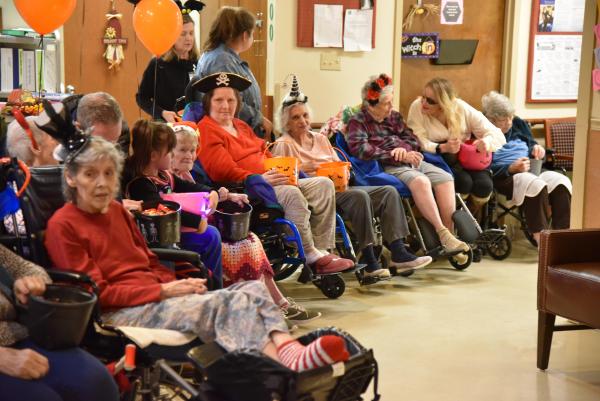RX For Your Good Health February 13

I first noticed it on Thanksgiving Day.
Allergies had been plaguing me for days. We were having guests -- my granddaughter was bringing friends from college. They were from Turkey and had never experienced an American Thanksgiving.
Of course, the last thing I wanted was to have a runny nose at the dinner table -- in front of guests, so I had the bright idea to become proactive and I took one 25 milligram tablet of Benadryl.
Full disclosure: In my younger years, I took Benadryl regularly for allergies. It was my go-to whenever I began sniffling, had drainage, a scratchy throat and/or itchy eyes. It always worked.
On Thanksgiving Day, however, after we had enjoyed a wonderful meal, dessert and much interesting conversation, I was literally falling asleep in my chair, so I went to bed and didn’t wake up until midnight.
In thinking about it the next morning, I decided the Benadryl plus the tryptophan from the turkey must have worked together to knock me out, particularly I have never been one to nap, and that day my nap lasted seven hours.
According to information from the Mayo Clinic, it is not advisable to take a tryptophan supplement, especially if you have liver or kidney problems. However, tryptophan -- which is found in eggs, chicken and other high protein food, is commonly used to treat insomnia and sleep disorders like sleep apnea. However, there’s not enough evidence to determine whether this is an effective use. More research needs to be done to see if tryptophan is safe to treat any of these conditions.
My geriatric nurse practitioner had all the answers, and I wanted to share this with you:
First, she told me “Benadryl should not be used by anyone over 65.” In almost all of geriatric pharmacology, age 65 is the line of demarcation -- between younger patients and older patients.
Drugs, when clinical trials are conducted, are generally tested on young, healthy test subjects (usually ages 30s to 50s). That sometimes means a drug will act differently in an older patient. For example, even some of the most commonly prescribed drugs can be problematic for elderly patients because they linger in their systems longer, causing higher rates of complications.
So, if you’re over 65 and not seeing a geriatrician, it may be a good idea to ask your primary care doctor if they are familiar with the Beers List.
In 1991, Dr. Mark Beers published a paper with a list of medications considered to be inappropriate for people living in long-term care facilities -- mainly older adults. Today, it is informally called the “Beers List” and used to help physicians improve care for older patients.
Last year (2019), the Beers List was updated and reviewed by the American Geriatric Society (AGS) and a panel of experts in geriatric care and pharmacists familiar with the primary medications regularly prescribed to treat older patients.
What’s new in 2019?
A panel of 13 experts reviewed more than 1,400 clinical trials and research studies published between 2017 and the last update in 2015. Across its five lists, the 2019 AGS Beers Criteria® includes:
• 30 individual medications or medication classes to avoid for most older people.
• 40 medications or medication classes to use with caution or avoid when someone lives with certain diseases or conditions.
• Several changes to medications previously identified as potentially inappropriate. Twenty-five medications or medication classes were dropped outright from the last update to the AGS Beers Criteria® in 2015, while several others were moved to new categories or had guidance revised based on new evidence.
About Benadryl (also known as diphenhydramine), the Beer’s List says this (to my surprise): Can cause urine retention, confusion and sedation. (Who knew?) Their recommended alternatives are Allegra, Claritin, etc.
Your physician will usually guide you about what type of analgesic (pain meds like aspirin) for you to use safely. The Beers List recommends: NO NSAIDS! Most often the alternative listed was acetaminophen. As always, it’s best check with your doctor. I found out about the Beers List when my geriatric NP referred me to it ( I had never even heard of it until she mentioned it.)
To see an example of the Beers List, find a modified version of the 2007 list at http://fmda.org/beers.pdf. Your physician may obtain the 2019 list from the AGS.
PS: I took my bottle of Benadryl to the fire station when they were collecting expired and unused medications for disposal.
SENIOR STATS:
• In 2017, people aged 65 to 69 in the U.S. were taking an average of 15 prescriptions per year, while those from 80 to 84 took an average of 18, according to the American Association of Consultant Pharmacists. The AARP found that, on average, 45-year-olds take four different prescription drugs — every day.
• Every year, approximately 32,000 seniors suffer hip fractures caused by medication-related problems, i.e., they are overmedicated, feel dizzy when they stand up -- and fall. Or worse, get behind the wheel of a car.
• One-third of all senior hospital admissions are brought on by adverse effects brought on by the combination of multiple drugs.
The information in this article is not intended or implied to be a substitute for professional medical advice, diagnosis or treatment.


